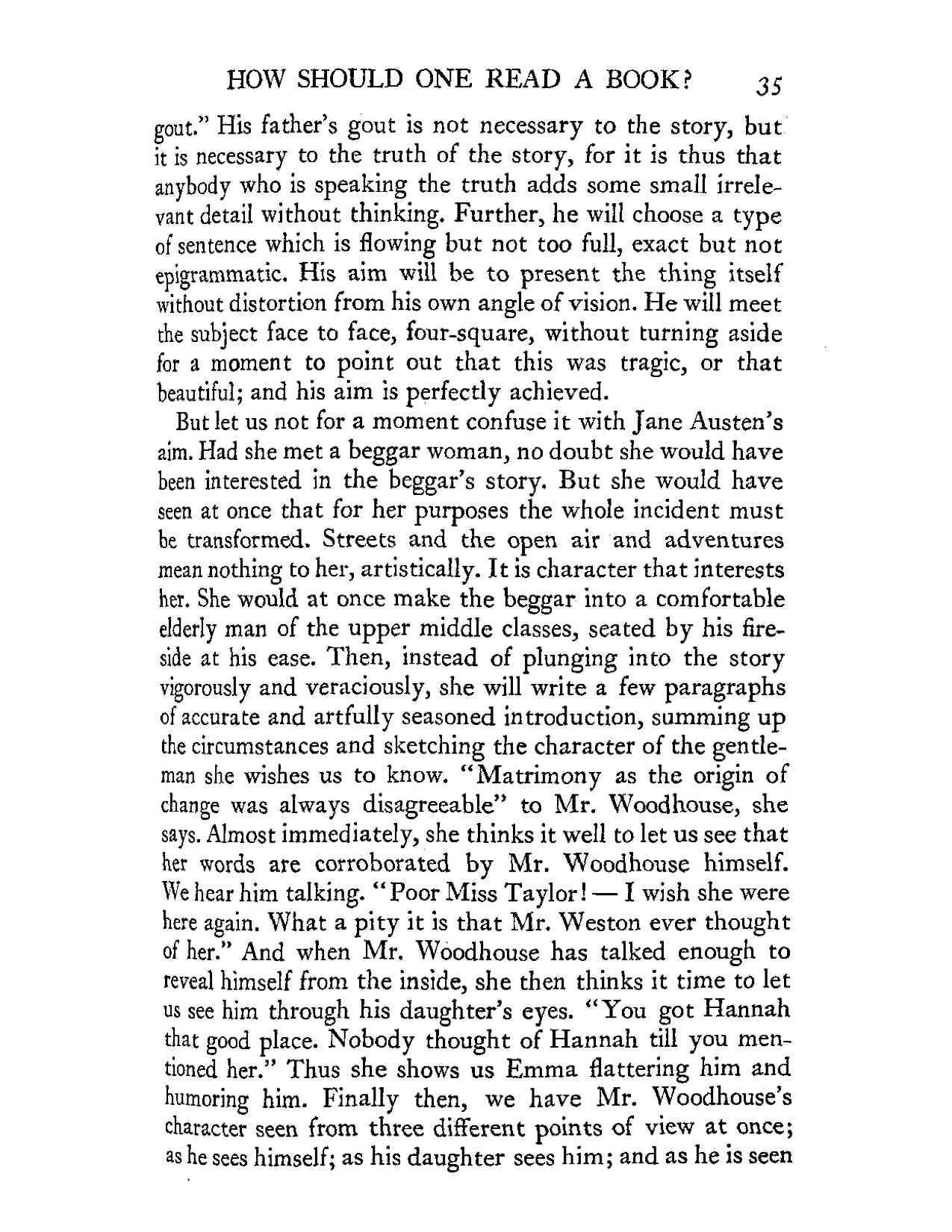
gout.” His father’s gout is not necessary to the story, but
it is necessary to the truth of the story, for it is thus that
anybody who is speaking the truth adds some small irrele-
vant detail without thinking. Further, he will choose a type
of sentence which is flowing but not too full, exact but not
epigrammatic. His aim will be to present the thing itself
without distortion from his own angle of vision. He will meet
the subject face to face, four-square, without turning aside
for a moment to point out that this was tragic, or that
beautiful; and his aim is perfectly achieved.
But let us not for a moment confuse it with Jane Austen’s
aim. Had she met a beggar woman, no doubt she would have
been interested in the beggar’s story. But she would have
seen at once that for her purposes the whole incident must
be transformed. Streets and the open air and adventures
mean nothing to her, artistically. It is character that interests
her. She would at once make the beggar into a comfortable
elderly man of the upper middle classes, seated by his fire-
side at his ease. Then, instead of plunging into the story
vigorously and veraciously, she will write a few paragraphs
of accurate and artfully seasoned introduction, summing up
the circumstances and sketching the character of the gentle-
man she wishes us to know. “Matrimony as the origin of
change was always disagreeable” to Mr. Woodhouse, she
says. Almost immediately, she thinks it well to let us see that
her words are corroborated by Mr. Woodhouse himself.
We hear him talking. “Poor Miss Taylor!—I wish she were
here again. What a pity it is that Mr. Weston ever thought
of her.” And when Mr. Woodhouse has talked enough to
reveal himself from the inside, she then thinks it time to let
us see him through his daughter’s eyes. “You got Hannah
that good place. Nobody thought of Hannah till you men-
tioned her.” Thus she shows us Emma flattering him and
humoring him. Finally then, we have Mr. Woodhouse’s
character seen from three different points of view at once;
as he seems himself; as his daughter sees him; and as he is seen






